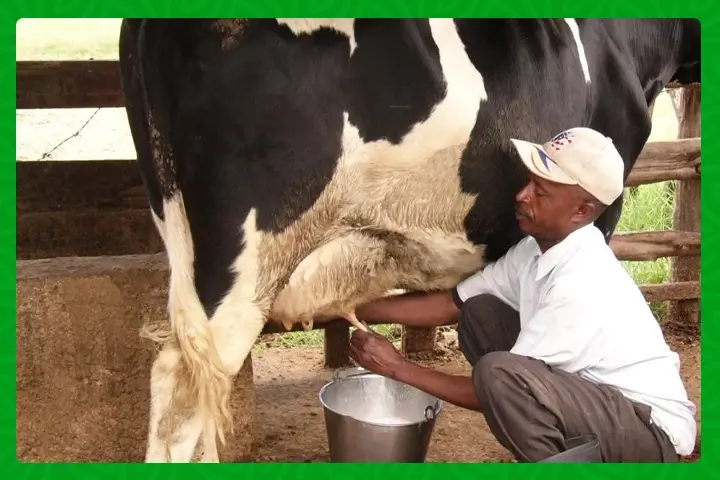
In a resounding victory for Kenyan dairy farmers, the government has stepped in with a robust response to the challenges posed by plummeting milk prices. To stabilize the dairy market and alleviate the concerns of farmers, a generous allocation of KSh1 billion has been earmarked for the New Kenya Cooperative Creameries (New KCC).
Agriculture Cabinet Secretary Mithika Linturi, voicing his concern over the recent dip in milk prices to less than KSh35 per litre, made this groundbreaking announcement at the NCPB depot in Eldoret. The move comes as a direct response to the grievances expressed by dairy farmers, highlighting the government’s unwavering commitment to supporting the agricultural sector.
Linturi, emphatically declaring a new era for dairy farmers, announced that the minimum milk price would now be set at a commendable KSh45 per litre. This intervention is not just about addressing immediate concerns; it signifies a larger commitment to the prosperity of farmers across various sectors.
“We have received concerns from dairy farmers about the drop in prices which might affect them negatively,” remarked CS Linturi, underscoring the government’s proactive stance in addressing the needs of the agricultural community.
The positive impact of this intervention resonates strongly in the sentiments of Uasin Gishu Governor Jonathan Bii and Soy MP David Kiplagat, who lauded the government’s swift and effective action. Their optimism reflects a shared belief that the injection of funds into New KCC will herald positive changes for dairy farmers in the region.
The government’s allocation to New KCC aligns seamlessly with its broader strategy, unveiled on November 12, to establish a robust milk price-stabilizing fund amounting to nearly KSh3 billion. Simon Chelugui, the Cabinet Secretary for Cooperatives and Micro and Small Enterprises, shed light on the intricacies of this initiative.
“The government will mop up the milk, convert it into powder milk, package it, and store it in the Strategic Food Reserve,” explained Chelugui. Starting from January, private processors will have the liberty to purchase the dried milk at a government-regulated price, ushering in a new era of stability for the dairy subsector.
In these strategic interventions, the government signals not only its responsiveness to the immediate concerns of dairy farmers but also its foresight in fortifying the dairy industry’s foundations. By safeguarding the interests of farmers and fostering stability, these initiatives contribute significantly to the overall growth and resilience of the agricultural sector. Kenyan dairy farmers can now look ahead to a future where their hard work is duly rewarded, and the dairy industry thrives.
Stay updated with the latest farming tips and agriculture industry news from Africa by subscribing to our newsletter. Don’t miss out on valuable insights and updates. Follow us on Twitter, LinkedIn, and Facebook to join our farming community and stay connected with us.



















